The Tübingen Center for Rhetorical Science Communication Research on Artificial Intelligence (RHET AI) was one of four centers funded by the VolkswagenStiftung in 2021 as part of the Science Communication Cubed program (Wissenschaftskommunikation hoch drei). The team of the RHET AI Center has set itself the task of researching and improving communication about artificial intelligence in science and society. To this end, among other things, workshop programs have been developed that are specifically aimed at researchers in the field of AI. Furthermore, projects on science communication were launched, such as the Artificial Friday and the format I'm a Scientist. Another focus of the RHET AI Centre is public engagement, which is implemented through public events such as the reading series A Different Look at AI, lectures, conferences and exhibitions.
On April 28, 2023, the RHET AI Day took place, focusing on two key questions: Where do we currently stand as RHET AI Center and how should we continue to shape the future? This joint day enabled the members at the three locations in Tübingen, Karlsruhe and Berlin to intensify their close exchange even further.
The team of the center came together in Tübingen for an open exchange of ideas. In the first half of the day, in addition to reports on the general status of the Center, the focus was primarily on the research perspectives of the individual units. Monika Hanauska and Anna Maria Köhler from Unit 1: Discourse & Narratives gave insights into their respective research on corpus linguistic analysis of the concept of the "black box" in relation to AI and on forms of protest in AI discourse. From Unit 2: Visual Communication, Lukas Kohmann, Anne Burkhardt, and Michael Pelzer presented their projects on AI in film, AI and the (global) South(s), and Knowledge Design. Patrick Klügel and Kim Luther from Unit 4: Events concluded with an insight into the initial results of their surveys, which are always conducted in conjunction with RHET AI Center events. The individual presentations were intensively discussed and new impulses for further work were set.
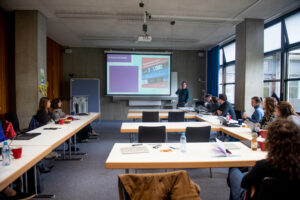
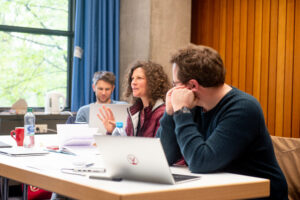
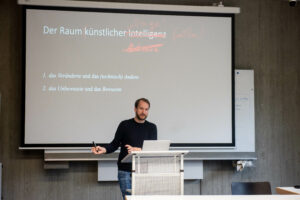

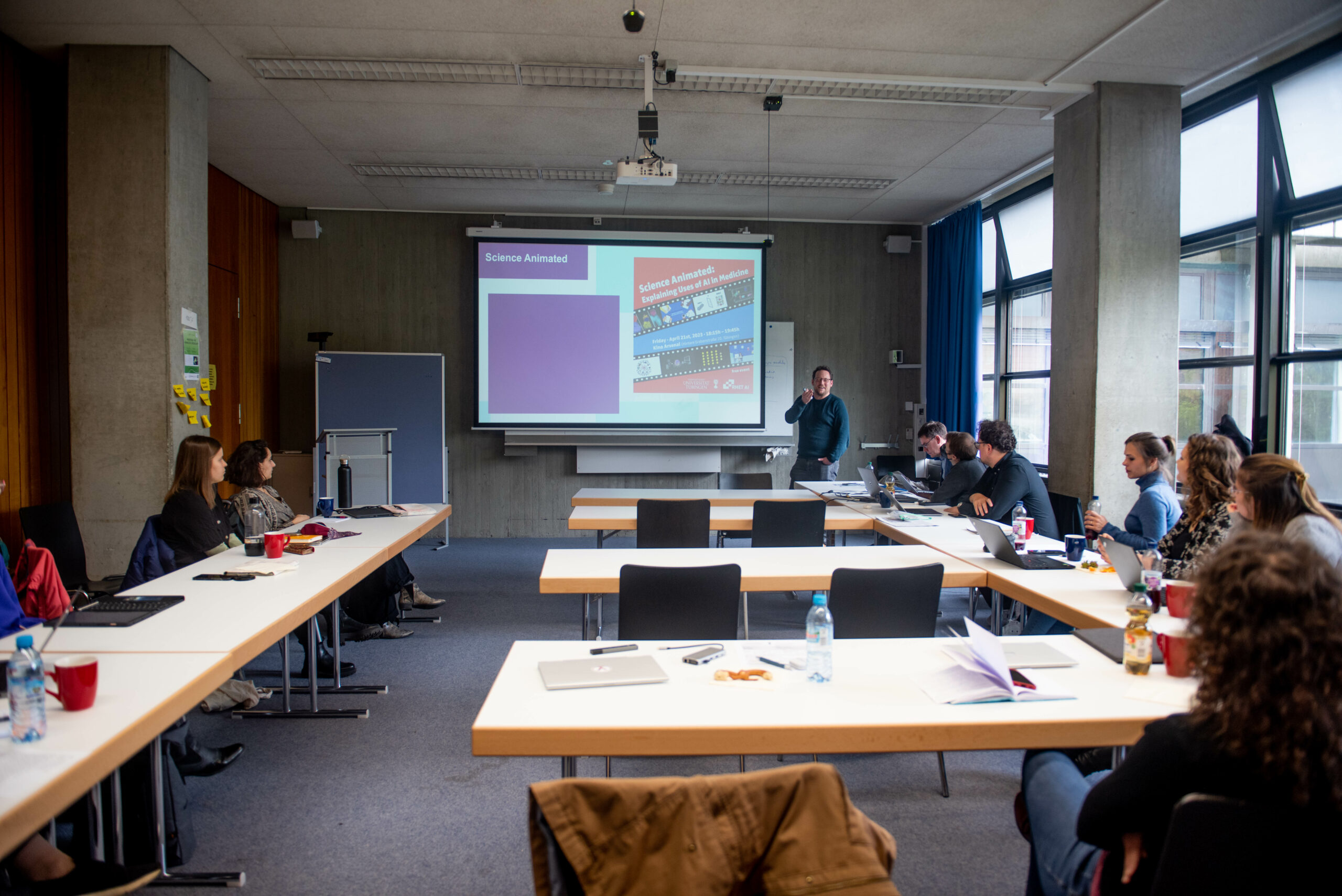
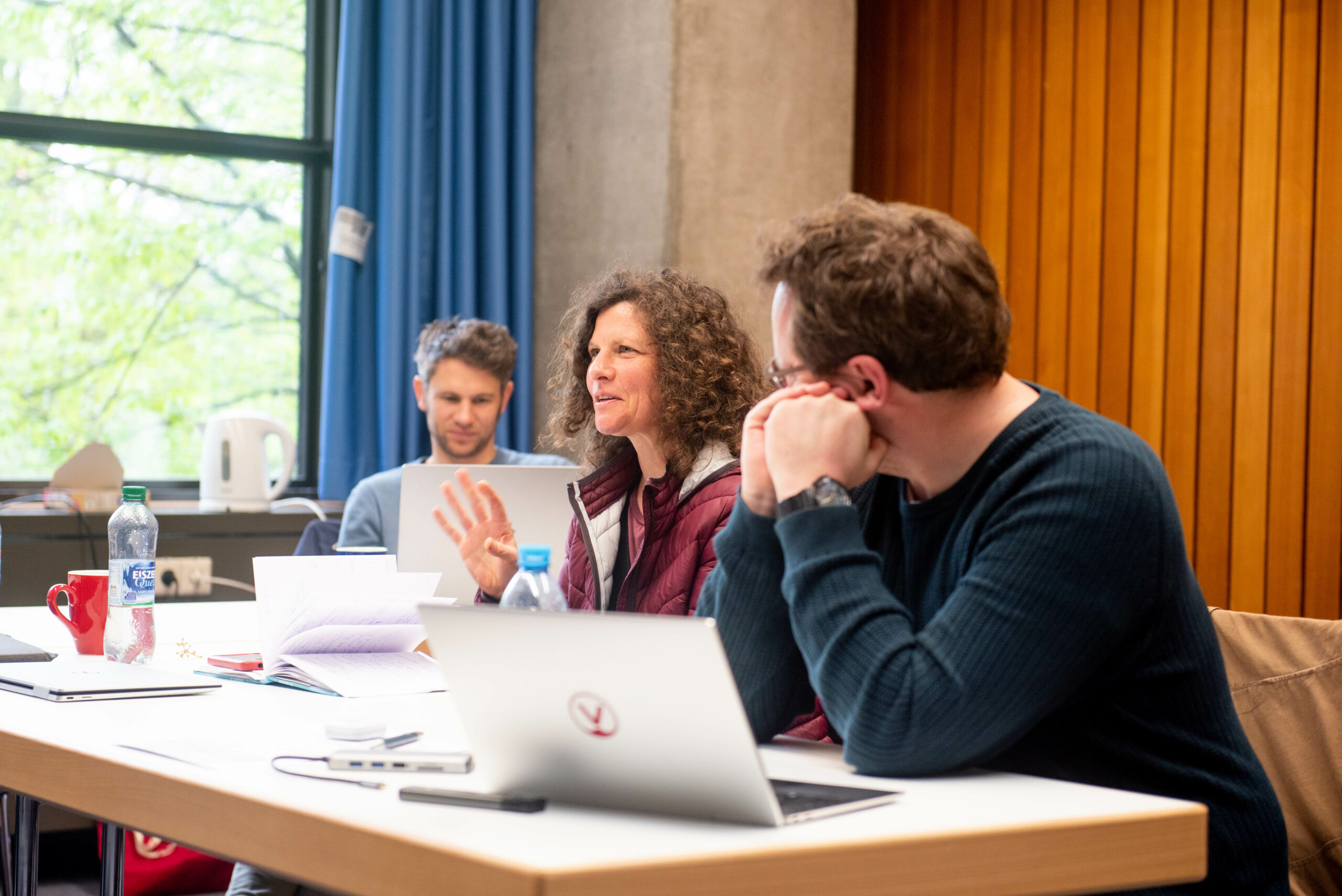
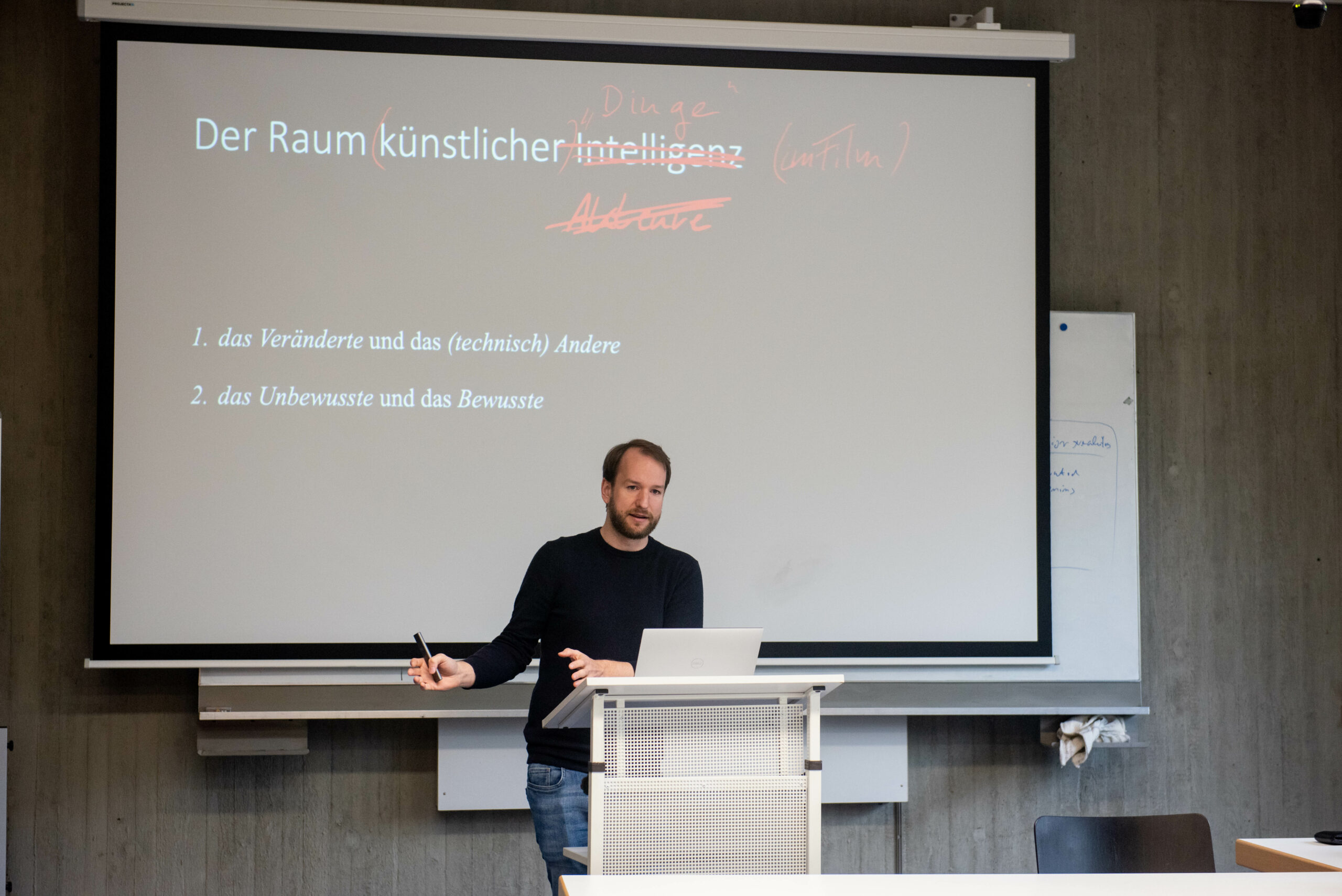
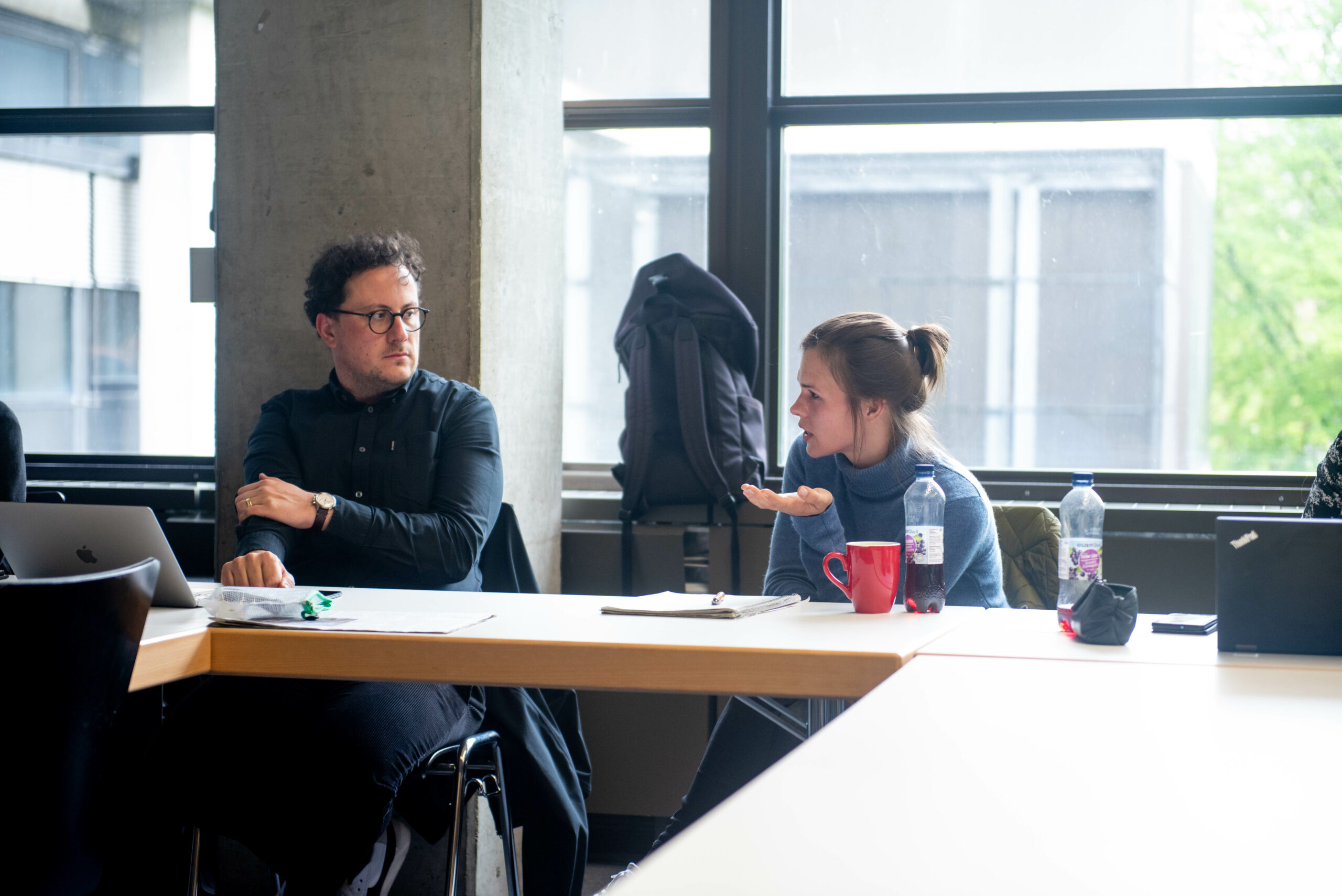
The exchange of ideas was also the focus of the second half of the day. After lunch, the next milestones and future projects were discussed in an open forum. The overarching goal was the question of how the RHET AI Center can continue to develop as a center of excellence for rhetorical science communication on artificial intelligence in the future.
In small groups, concrete action steps were designed and challenges identified at an early stage. These were then discussed together.
In summary, we can reflect on a motivating and insightful RHET AI Day 2023. We are now looking forward to implementing the ideas from the day. You can sign up here for our newsletter with all the notices of upcoming RHET AI Center events.





